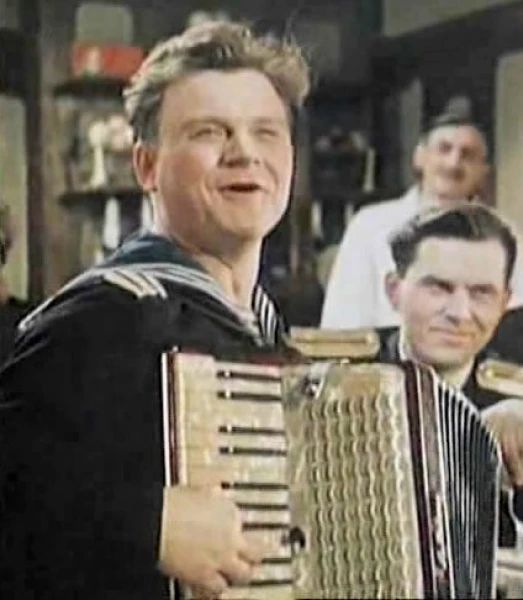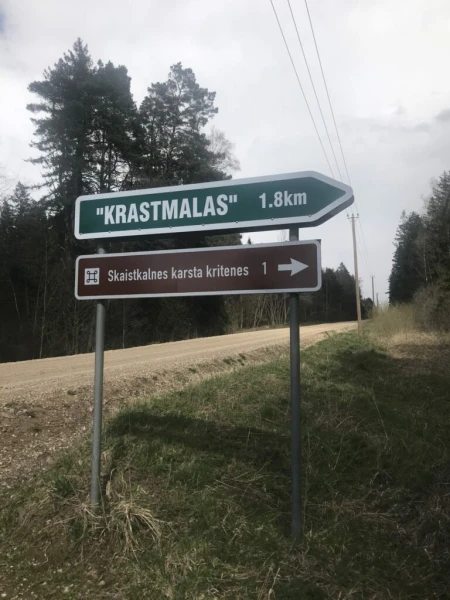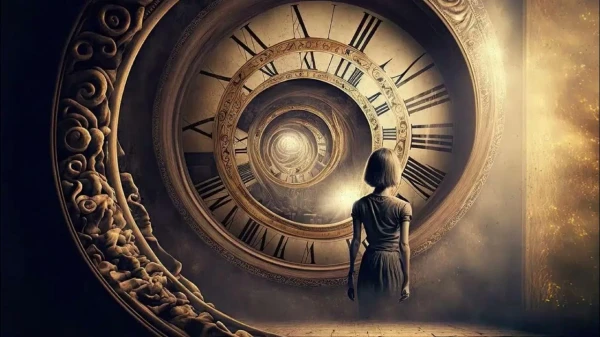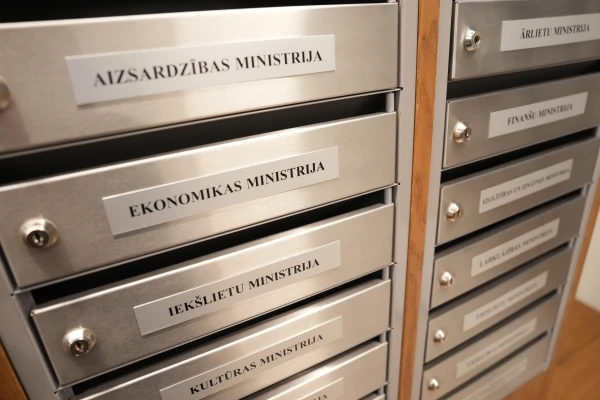
The author of the famous melodies hid his repressed father.
Few people from the post-Soviet territory have not heard the music of Tikhon Khrennikov. His hits, such as "Long Ago," "What So Disturbs the Heart," "Moscow Windows," and "Little Boat," are remembered and loved by millions. Tikhon Nikolayevich Khrennikov is one of the most celebrated composers in the Soviet Union, who, among other things, was appointed to the highest position in the country's main musical institution — he headed the Union of Composers of the USSR, although he himself did not strive for this at all. For many years, he was forced to combine these two public roles — musician and functionary, sometimes making tragic compromises for himself.
At two o'clock in the morning, four fists knocked on the door of the Zubovich family's dacha, located somewhere near Pushkino. The awakened household members almost collectively turned gray (except, of course, for the already gray-haired Rozaliya Vasilievna, the mother of engineer Zubovich). It was 1936, the time of the Great Terror, when neighbors simply disappeared without a trace after the arrival of the "black raven." Klara Zubovich, head of the press bureau of the Union of Composers, fearfully opened the door. But on the doorstep were not the NKVD officers, but two Leningrad composers — Ivan Dzerzhinsky and Vasily Solovyov-Sedoy. They looked extremely anxious.
The news caused such a commotion that probably even an entire NKVD brigade at the door would not have achieved. Rozaliya Vasilievna grabbed a sheet and began tearing it into bandages. Klara, in her nightgown, ran outside to the taxi parked by the gate, shouting: "Tishenka, my beloved, what happened to you?" Tikhon Khrennikov was not only a promising young composer, known even in the West, but also Klara's secret lover. However, it was no longer such a secret: Klara's lawful husband, engineer Zubovich, was trying to catch up with her: "Klarochka, calm down, the neighbors will hear!"
But the first to reach the taxi was Klara's mother-in-law Rozaliya Vasilievna, magically prepared with bandages. She rushed to the back seat where Tikhon lay. Feeling the shirt soaked with sweat, she recoiled in horror: "Blood!"
Khrennikov was ready to sink through the ground from shame. He jumped up and began explaining to everyone that it was just a silly joke. Fortunately, the story ended with a communal night feast on the terrace. But in reality, this was just the beginning of the story of Tikhon and Klara.
The "silly joke" was actually a poorly planned attempt by Khrennikov to abduct his lover from her husband's dacha. Tikhon would later make another — less creative but no less dramatic, yet more successful attempt, and his union with Klara would last for the rest of his life.
Klara played a role in Khrennikov's life that was no less important than music. In fact, Klara and music were closely intertwined for Tikhon. But to tell this story, we must start from the very beginning.
Khrennikov was ready to sink through the ground from shame. He jumped up and began explaining to everyone that it was just a silly joke. Fortunately, the story ended with a communal night feast on the terrace. But in reality, this was just the beginning of the story of Tikhon and Klara.
The "silly joke" was actually a poorly planned attempt by Khrennikov to abduct his lover from her husband's dacha. Tikhon would later make another — less creative but no less dramatic, yet more successful attempt, and his union with Klara would last for the rest of his life.
Klara played a role in Khrennikov's life that was no less important than music. In fact, Klara and music were closely intertwined for Tikhon. But to tell this story, we must start from the very beginning. His birthplace was Yelets, a small county town with about fifty thousand residents, now in the Lipetsk region. This place remained for him "the holiest on earth" for the rest of his life. Close to home was a church, where his devout parents sent six-year-old Tisha to serve as a choirboy.
Tisha was born in early summer of 1913. This time brought great changes, wars, and hardships. But cruel fate spared his closest relatives — all except for his brother Gleb, a singer who graduated from the Moscow Conservatory and perished on the fronts of World War I during the revolution. Tisha did not remember him at all but followed in his footsteps, deciding to become a musician.
Music was loved by everyone in the Khrennikov family — older brothers and sisters played guitars and mandolins and sang. As a schoolboy, Tikhon joined an amateur orchestra, where he once amazed everyone by playing a melody on glasses filled with different amounts of water. When one of his sisters bought a used piano for the house, it was mainly the younger Khrennikov who spent time at it. He even began to compose music himself.
His relatives supported Tisha's musical pursuits, so at the age of 15, young Khrennikov was sent to Moscow to live with one of his sisters and enroll in the Gnessin Music School. Before his departure, his father gave Tikhon a charge: "Live for yourself and let others live." This testament stayed with Khrennikov for life.
"When I approached Moscow, I saw these huge buildings — and I became scared. How can one live in such a huge city and, moreover, become famous? How can one, having acquired the profession of a musician, be recognized in this city? So many people! It’s impossible," Tikhon Khrennikov recalled.
But the impossible is possible. Otherwise, how did Khrennikov, without any specialized education — music school, or any theoretical knowledge at all, manage to enroll in the Gnessin School? In fact, we must give credit to the Gnessins themselves, who maintained an incredibly friendly, family atmosphere in their educational institution. Khrennikov personally witnessed that, for example, Elena Fabyanovna Gnessina knew everyone in the school by name — at that time, there were no less than three hundred young men and women!
He had to live in hunger and study to the point of obsession. Tikhon took advantage of the time when his sister and her husband went to work to make music at their home. As a result, Khrennikov graduated from the school in three years instead of four, and then immediately enrolled in the second year of the Moscow Conservatory. There, the young prodigy began to write his first major works.
His creative activity was not halted (and perhaps even spurred) by the death of his father from stomach cancer in 1933. Nikolai Ivanovich's health was undermined by his arrest: for several months, the old man was held in the NKVD dungeons due to an anonymous tip, demanding he hand over gold that he had never possessed.
First, Khrennikov wrote a piano concerto, which received much acclaim in the press. Then came his first symphony, completed in 1935 and performed with great success by the Great Symphony Orchestra of the All-Union Radio, after which a request for the score came from the conductor Leopold Stokowski in the USA. The British performed the piece in the States, announcing to the audience: "The Bolsheviks have redone everything at home, but they cannot redo the Russian soul — it is in this symphony."
This work became Khrennikov's diploma piece with which he graduated from the conservatory. The chairman of the commission was the legendary composer Sergei Prokofiev, who gave him a four, citing the outdated language of the symphony. The other teachers, who cherished the young talent, did not dare to contradict the famous pianist. For Tikhon, who considered Prokofiev the best composer of the 20th century, this was apparently a significant blow — at least he refused to take the "blue" diploma from the conservatory.
But there was no time to harbor resentment: the now-famous Khrennikov had plenty to do. The Vakhtangov Theater commissioned him to write music for the play "Much Ado About Nothing" by Shakespeare. The songs from the production would become true Soviet hits. One of them, the serenade "Like a Nightingale About a Rose," is associated with one of the most important romantic stories in Tikhon's life: besides his creative activity, Khrennikov did not forget about his personal life, deciding to arrange it so firmly that even his beloved's marriage did not hinder him.
Klara was four years older. In early 1936, she worked in the press bureau of the Union of Composers and knew the surname Khrennikov very well. That’s where they met when Tikhon came to check the reviews of his works — Klara collected and stored newspaper clippings in archives. The young composer stood out to her because, after reading about himself, he returned the clippings back. A spark flew between them. They began to meet secretly.
One day, while walking with Klara, Tikhon boasted about working on "Much Ado About Nothing" and the love serenade he was preparing for the play. She wanted to listen. When Khrennikov played her an early version of "Like a Nightingale About a Rose," she was disappointed: "Is this a love serenade? Is this how you love me? This is just bad music; it expresses nothing."
After the story of the "terrible accident," Klara temporarily moved from her husband to her mother. Tikhon arrived there by taxi alone, sitting up rather than lying down. However, to his surprise, he met Zubovich at his future mother-in-law's house. Khrennikov directly told him that he loved Klara and wanted to marry her. "Get ready, we’re going to Yelets to meet the family," he said.
For Khrennikov, the abduction of Klara was not the only drama of those years. In 1937, repressions finally affected his family: two of his brothers, Nikolai and Boris, were arrested in Yelets. Tikhon managed to ensure that Nikolai was tried in an open court, and a famous lawyer brought from Moscow rescued him from the clutches of the "justice machine." Boris could not be saved: he was tried by a troika and perished in the Gulag.
Remarkably, despite all these adversities, Khrennikov continued to work hard. Soon, the founder of the Moscow Art Theater, Vladimir Nemirovich-Danchenko, offered him to write an opera. "In the Storm" was an outright political speculation: the libretto was based on a novel that Stalin liked very much, and the music was inspired by an opera that the leader publicly approved. But Khrennikov chose a theme that genuinely concerned him.
The plot about the confrontation of peasant communists against the Antonovshchina even included a character of Vladimir Ilyich Lenin, who, fortunately, did not sing. It is not surprising that Stalin attended the premiere in the company of Molotov and Voroshilov, which at that time meant the highest degree of recognition of the work...













